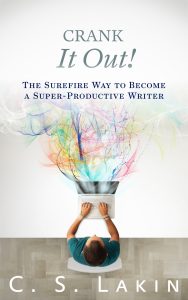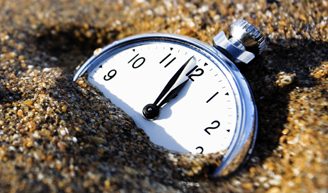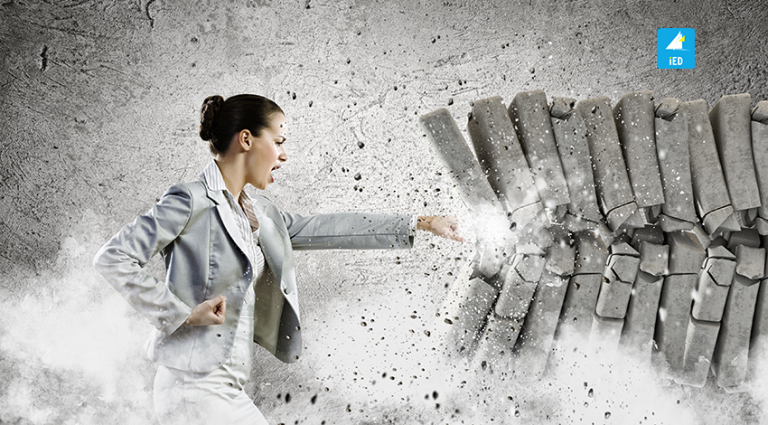How Writers Can Retrain Their Brain to Tune Out Distractions
Last week we started talking about distractions and how this era we live in has corrupted us. We are so easily distracted by tech, so it’s no wonder it’s so hard to get a good chunk of writing done. Not only is our time impacted by the countless distractions; the quality of our writing suffers.
I mentioned that Larry Rosen, PhD, a research psychologist and author of Disorder: Understanding Our Obsession with Technology and Overcoming Its Hold on Us says we rarely focus on and attend to any task for more than three to five minutes without getting distracted.
His advice? We have to retrain our brain to respond based on a set schedule rather than spontaneous cues (such as beeps and bells and pop-ups telling us someone or some app is sending us a message).
Easiest way to do this is to turn everything off.
If you’re working on your computer, close all windows but the one you’re working in. I keep open my Word doc and my Dictionary program. Turn off notifications on your computer. Turn off your phone or stick it under your pillow in your bedroom. Then shut the bedroom door.
This makes me think of my favorite Frog and Toad story (which I’ve blogged about before—look up my posts on willpower on my blog here). Toad made cookies, then took them to Frog’s house. They’re so good, they can’t stop eating them. Frog puts the cookies in the box, but Toad says, “We can just open the box.” Then Frog ties string around the box. Toad then says, “We can just untie the string.” You get the drift. Even when the box is tied and placed on a high shelf, they know they can just get the ladder and take them down. The solution?
 Frog takes the box outside and scatters the cookies for the birds to eat.
Frog takes the box outside and scatters the cookies for the birds to eat.
“Now we have no more cookies to eat,” said Toad sadly. “Not even one.”
“Yes,” said Frog, “but we have lots and lots of willpower.”
“You may keep it all, Frog,” said Toad. “I am going home to bake a cake.”
Are you lacking willpower? We’re ruined our brains in that regard as well. We hear something and we have to run, not walk, to Facebook and post about it. It may not serve you best to throw your tech out for the birds to eat (or the deer to trample). But you have to start somewhere to retrain your brain.
Here’s what Rosen suggests:
Start small. Set an alarm for one minute. During that minute, you can check your email, jump on Twitter, whatever. When that minute is up, stop.
Then set your alarm for fifteen minutes—the average person’s maximum attention span in this modern age. Now you have to work for those fifteen minutes—hunker down and write—without your attention wandering. You can do that, can’t you?
Repeat.
Don’t just put your phone facedown on the desk during your writing time. Make sure all distractions are eliminated so you don’t see them. If something pops up (those are deadly!) to notify you of something, it’s going to make your switch your focus and get out of your writing zone.
In the evening, I hear continual dings on my phone, telling me there are four minutes left and the Spurs are up three points over the Raptors. Since there are sometimes eight games going on in an evening, you can imagine how many alarms sound—on both my phone and my husband’s. But hey, that’s okay, because we’re watching a game or three at that time. There’s a time to allow notifications and a time to shut them off.
Once you are comfortable with fifteen minutes of distraction-free work time, which may take anywhere from a few days to a couple of weeks, bump it up to twenty, then twenty-five, then thirty minutes. “Once you are at thirty minutes, that works,” Rosen says.
Let Others Know You’re in Brain Retraining
Need help and accountability? Tell family and friends you are doing this and to not interrupt you during writing time. While you can’t control every single bit of your environment or avoid emergencies, you can create this new habit in order to retrain your brain.
During that one minute in which you can check your email, if you have a pressing situation that is going to take longer, write the person and tell them, “I’m in the middle of writing and will get back to you at 1 p.m.” That way you can get that worry off your brain and get back to writing without distraction.
If someone takes offense, just tell them the truth. That you are trying to retrain your brain to focus and not give in to distractions.
Some companies are scheduling in “phone-checking” time during a long meeting for this very purpose. They want their employees to pay attention to the meeting but know if they don’t give them breaks to deal with their “stuff,” they may lose concentration and be distracted.
No, You’re Not Going to Die If . . .
We’ve programmed our brains to believe that if we don’t stop what we’re doing and check the world out there, we’ll miss out on something important. The Internet has brought the entire world into our private lives, and something important and impacting is always going on in the world every second. We can’t keep up.
Thing is, we believe we have to. Until we can reprogram our brains to believe we don’t have to be up on everything at any given moment, we will be at the mercy of our tech. Instead of making tech work for us.
“If [tech] is driving you, then you need to become the driver again,” Rosen says.
That’s a whole lot harder than it sounds. But by trying this method Rosen suggests, it may be the first step toward untying the umbilical cord.
Seriously, if you want to become a super-productive writer, you’re going to have to learn how to do this to some extent. Keep in mind those statistics about multitasking. It’s a productivity killer. You’re just going to have to bite the bullet and change some of your habits.
Yes, life was simpler back in the day before all this tech. We lived at a slower pace. But in many ways, we got a whole lot more done—because we didn’t have the distraction, and our brains weren’t ruined. I, for one, am all for working my way back to a less-distracting daily routine.
How about you? What can (and will?) do to get in the driver’s seat and take control of the tech? What one thing can you do today to eliminate some distractions and produce better writing (and get more writing done)?
And, for fun, watch this YouTube video of the Frog and Toad “Cookies” story!
Regardless of whether you write fiction or nonfiction, if you want to get established as an author, you need to be productive. Highly productive.
You can’t just write one terrific book and call it good, expecting that singular work to carry you atop the wave of success for y ears to come.
ears to come.
Studies show readers want 3-4 books a year from their favorite authors. And to build traction and a growing audience, authors need to deliver.
The key to being highly productive is centered on knowing yourself. First you need to identify your distractions, excuses, and attitudes that are keeping you from being the productive writer you want to be. Then you need to assess your unique biology, to determine the best times to write and to optimize your sleep and eating habits. It’s all here in Crank It Out!
Get your ebook or print copy HERE.
Turn your life and career around by learning the surefire way to be the super-productive author you long to be!












I enjoyed the post, Susanne.
When I’m writing, I set a timer for twenty-five minutes. During those minutes, I stay away from social media and e-mail. After the timer dings, I get away from the computer for three to five minutes.
If I’m bogged down, that break often refocuses me.
Occasionally, though, a trek to Facebook or Twitter gives me fresh ideas. Having said that, I maintain organized lists at both sites. They allow me to see what’s new without having to scroll through hundreds of screens.
Curious as to how you maintain organzed lists on Facebook and Twitter. What do you make lists of, and how can you ovrride what Facebook, for example, places in your news feed?
For Facebook, go to https://www.facebook.com/bookmarks/lists and create as many lists as you want. Then add appropriate friends or pages. When you want to see only authors, for example, you’d go to your Authors list.
On Twitter, click the More tab on your main profile page, go to Lists, and create as many as you wish.
Hi there Susanne. I enjoyed this article and one of the best things I did was to turn off notifications on my phone. I also made my home screen blank – moved all the icons to screen two. That made way on the home screen for a handsome actor to be looking at me asking “shouldn’t you be writing?” I also found the less I did on social media, the less ‘stuff’ came in. Win/win.
Now I need to tell you that it is extremely dangerous to put your phone under your pillow. They get hot – especially when plugged in – and have started fires this way. Doing the home screen/notifications thing is all that’s needed – we don’t need to be notified about anything when we know full well we will be checking our phones forensically when we do give ourselves access!
I replied really because of the fire hazard, not to tell you my method – but it really worked for me and once we make those changes it’s such a wake-up call. It’s freedom actually.
Best wishes,
Jay Hicks